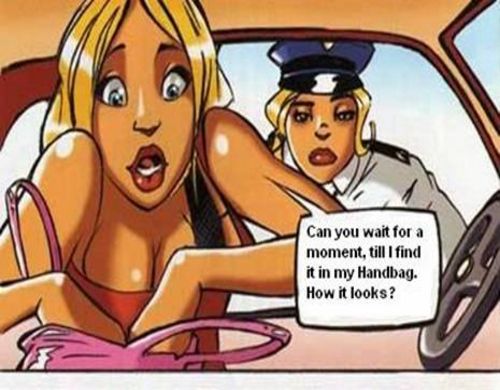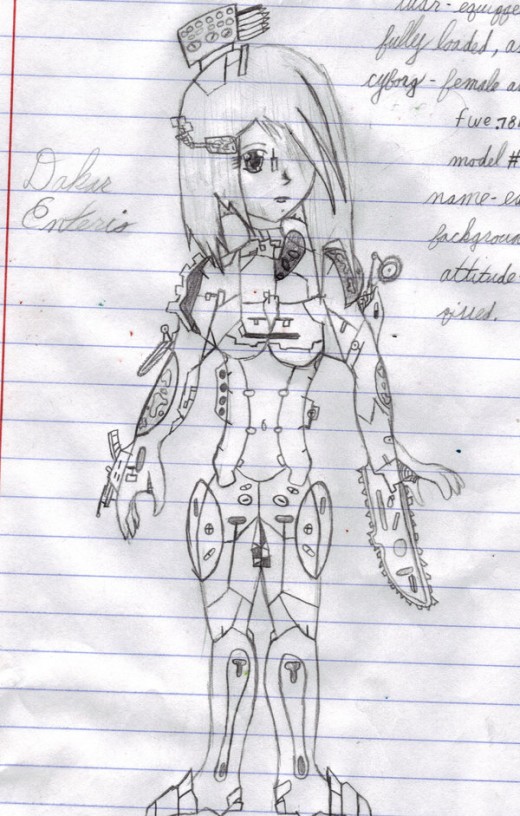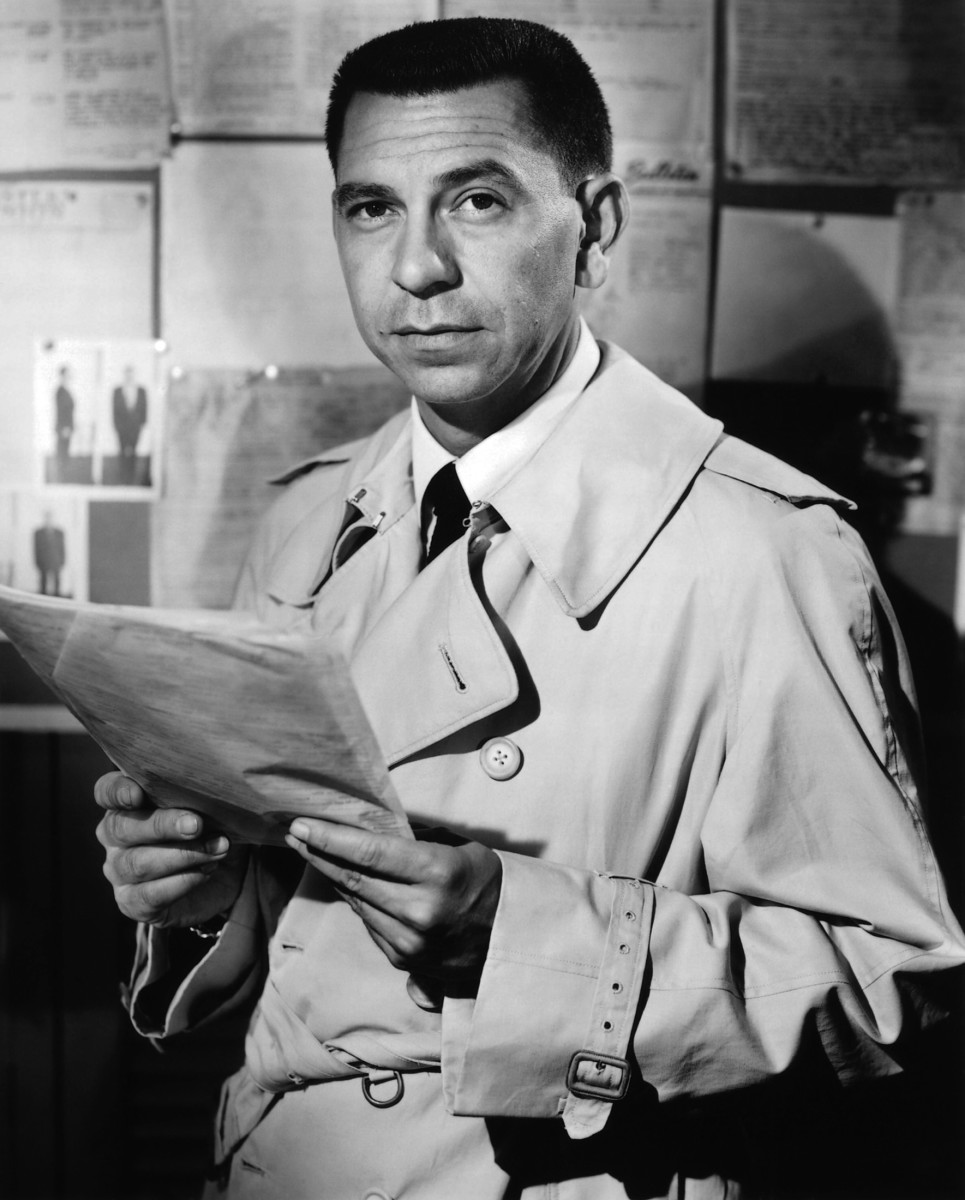Short Story Course - Tips for Characterisation and Dialogue

Lesson 6a - Characterisation in the Short Story
Many short stories these days are almost plotless, and therefore they depend on characterisation to hold the attention of readers. In fact, if the characters are dull and lifeless, even the most brilliant plot doesn’t help.
There are many instances of characters in novels becoming so lifelike that readers react strongly when they die or something terrible happens to them. The young Nell in Dickens’ The Old Curiosity Shop is an instance of such remarkable characterisation, that a woman said to the author: “I can never forgive you for letting Little Nell die.”
According to Forster’s biography of Charles Dickens, many readers of the author’s serialised novels would write to him to be merciful to certain characters who they thought were heading for tragic ends.
Conan Doyle faced similar sentiments when he decided to kill his character – the famous detective Sherlock Holmes.
How can writers achieve such an illusion of reality? Here are some tips:
- Don’t create exact portraits of existing people. You can never completely know a person as they may conceal certain things from you. In fact, most people barely know themselves. You’ll only end up with a character that lacks credibility since you don’t really know the clues to his conduct.
- Try to give clues to a character’s appearance via action. Show, don’t tell. Instead of writing, “Hilda’s hair was black”, write: “Hilda tossed her black hair in a gesture of defiance.” In the same way, try and depict inner nature through actions. If you want to tell the reader that Jack Hart is unscrupulous and callous, you can have him rob a child of the money he’s saved to buy an ice cream.
However, if the action used to depict some inner trait is not an authentic part of the plot of your short story, choose to tell.
- It is preferable to portray appearance and inner nature together. This way, the person and his personality are established together. Here is an example from a story ‘ A Lodging for the Night’ by Robert Louis Stevenson where he describes Francois Villon:
“. . . a rag of a man, dark, little, lean, with hollow cheeks and thin black locks. He carried his four-and-twenty years with feverish animation. Greed had made folds about his eyes. Evil smiles had puckered his mouth. The wolf and the pig struggled together in his face.”
Note the expert rendering – “He carried his four-and-twenty years with feverish animation” – not “He was twenty-four years old.”
- Don’t describe physical features in exhaustive detail. Unless the features are out of the ordinary or remarkable in some way such as a large bulbous nose or a hunched back. All art is the art of selection, and you can tell an artist by what he omits. A complete portrait can be achieved by describing just one or two carefully selected features.
- Be wary of stereotypes. A high forehead doesn’t necessarily imply braininess; it could just be baldness.
- A portrait can be obtained by describing the figure rather than the face. H.G. Wells’ fat man, Pyecraft in ‘The Truth about Pyecraft’ was “a great rolling front of chins and abdomina.”

Exercises for Characterisation and Dialogue
- Choose three or four characters from the list below and introduce all of them into one conversational scene of about 1000 words. Each character should have an appearance and character of his own: a querulous person; a beautiful, bombastic person; a imid, apologetic person, a conceited person whose conceit is not obtrusive, a ‘dumb blonde’; a pedantic person; a racecourse enthusiast; a matchmaking mamma; an absent-minded intellectual; an athletic clergyman; an efficient secretary; a hen-pecked husband; a cultured policeman; a suave estate agent.
- Write a conversational scene, not longer than 500 words with two characters. The conversation should portray a strong emotion like hate, pity, fear or love.
Lesson 6b - Dialogue
Conversational Scene -Characters: conceited person, dumb blonde, absent-minded intellectual
Malenka rolled the sheer black hose down her long, slim legs. She unzipped her little black dress that had caused such a sensation at the shoot. A little fearfully she looked at her back in the mirror. The tiny scar looked better now. Fainter. Or was she only imagining it? Pulling out a loose cream dress from the cupboard, she slipped it over her auburn head.
The bell rang twice. Cursing, she ran to the door on bare feet and opened it.
She froze. Paula, her shock of platinum hair in wild disarray, stood there, her arm around long lost David’s shoulders. She grinned widely a as though she had brought Malenka a gift.
Malenka was painfully conscious of the coffee stain on the front of her dress. She had a crush on David. But he was staring right through her as usual. She saw her face in his spectacles. She saw that his black hair was curlier. He looked thinner, taller.
“Oh it’s you Paula!” she said, plopping down on the couch.
“Come on, David, you’re seeing Malenka after five years. Wake up!” Paula giggled loudly and pushed him into an armchair.
“Oh? Oh yes, I’m seeing the lovely Malenka after five years. Time flies. How’s the modelling? I see you on magazine covers all the time.”
“I don’t look like a model now, anyway,” she said with a pout.
“Oooh! I can’t believe it, Malenka’s being modest.” Giggled Paula, her green eyes round.
“well, even models must relax, you know, and stop bothering about how they look when no one’s watching.” Malenka covered the stain with her red-nailed hands. “But I’ve got a shoot in a swimsuit tomorrow and there’s a scar on my back.”
“What did you do, fall on top of the camera stand?” said Paula with a giggle.
“Paula, when will you get serious? I mean, this is serious.”
“I had one on my thigh when I went to the beach once,” said Paula, glancing at David who was staring at the pile of Harold Robbins on the coffee table. His nose was wrinkled with disapproval.
“What did you do?” Malenka leaned forward.
“I hid it under concealer but it should have been water-proof.”
Before Malenka could sigh with exasperation, David said suddenly-
“Scars, Malenka, they take time to heal.” He felt his pockets.
“Is it something you’ve got for Malenka?” asked Paula, looking like a platinum rabbit with cocked ears.
David blushed. “N-no – I’m afraid I’ve lost my wallet.” He pushed the glasses up on his Roman nose.
“You must have forgotten not to think,” said Malenka with faint smile.
David took off his glasses and polished them on his cuff. His mouth twitched.
“You know,” said malenka softly, “you look handsomer without those glasses.”
“I don’t really care how I look.”
“Aren’t you going to look for your wallet?” said Paula smoothing her red skirt over plump thighs.
“Money comes, money goes.”
“But you ought to care about how you look, David,” said Malenka. “Don’t you care about beauty?”
“Ah yes, in nature, yes in art, yes, but in me? I want to think.”
“To think ?” cried Paula. “That’s the most boring thing I can think of.”
They ignored her.
“Do you know David, I’m dreading the day I get my first wrinkle.”
“You’ll never look old Malenka. You’ve got too much of the child in you.”
“She doesn’t look like a child,” said Paula.
“You won’t understand,” said Malenka.
“Einstein was a child in some ways. Did you notice his eyes?” said David.
“Yeah, with bags under them,” said Paula with a giggle.
“He had the wonder, the curiosity of a child, Paula,” said David patiently. “He wondered what it would be like to travel at the speed of light and discovered the theory of relativity.”
“What’s that?”
“You won’t find it too interesting,” said Malenka, going to the bar and picking up a bottle of wine.
“French wine? That interests me a lot.” Paula took the glass of wine from her.
Malenka held a glass out for David. Their eyes met. And locked.
“You haven’t told me hwo I look after five years,” she said softly.
“Lovelier, Malenka. But now I see a different dimension in your beauty. It’s a maturing, a wisdom, a vulnerability that wasn’t there before. Your eyes, it’s all in your eyes.”
‘Oh Malenka, you do sound complicated,” said Paula, sipping her wine and crossing her legs.
“And you, my dear Paula, you are so simple, I don’t even see you,” said David irritably.
“Lets’ change the subject,” said Malenka. “You spoke of scars, David. Has something terrible happened to you in these five years you were away?”
“It was September last year I think, or perhaps the year before that . . .my agent gave me a shock. He said I would never ever make it as a writer. To think that I have been publishing article sin the magazines so long! I thought everyone liked my work. Then I took a deep breath and got halfway through a novel. He read it and that was it. Now. . . now I don’t even feel like writing. I feel futile, Malenka. I thought I was the greatest.”
Paula stared at him, her red mouth slack.
“Well,” said Malenka, feeling something strange happening in her belly, “did you know that several publishers refused to publish Tolstoy? But he persisted. He believed in himself. Finally, he had to pay to get published.”
“Pay? He paid? He must be a terrible writer,” said Paula, uncrossing her legs.
“Have you read ‘War and Peace’? said David.
“Uh, no. All those pages!”
“Paula, you’ll never change,” said David. Malenka was trying not to smile.
“Why should I? My boyfriend likes me as I am.”
“I’m sure he hasn’t read Tolstoy either or studied the theory of relativity,” said David, his lips curling with contempt.
“Hey, I’ve got so much to show you two, so many photographs!” cried Malenka, diving for the fat album on the table. She had to save the evening. And she wanted David to forget the stain on her dress. Or had he really noticed it?

Exercise 2 Lesson 6
I also sent my tutor a piece of conversational writing which conveyed an emotion.from my SF novel ‘Undersea’ (I was still writing it for the CBT competition).
The Troubled Cyborg
In this chapter Aditya discovers a ‘cyborg’ (a person with artificial limbs and organs). He hears weeping on the seashore and sees this girl huddled inside a coral cave, shaking with sobs. He has come to an island whose inhabitants have become cyborgs by choice – they want to live longer. He notices the skin on her face and throat. The rest of her is plastic. Her hair is long and red.
She saw him. Her mouth opened in a startled “Oh!”
“I heard you cry,” said Aditya, walking into the cove. The sun broke through the mist.
“You bring the sun with you.” She wiped her eyes. “Maybe it’s a god sign for me.”
“Why were you crying?”
“Because I can’t feel the sun on my skin anymore and the sand beneath my feet. I’m not real, I’m a cyborg.” Her voice shook.
“But you want to live longer and you want to be free from disease,” he said gently.
“I didn’t choose to. My people made me.”
“ I could show you how to feel the sun on your skin. The dolphins feel the sun even when they’re several feet below the sea’s surface. They call it dreaming with their skins.”
“Dreaming with their skins . . . how beautiful it sounds. Tell me about it.”
“I don’t know much, but I will teach you whatever I know. I think the most important thing is how to keep your sense of wonder alive. It means being aware of all your senses.”
“I have a secret garden. We could sit there among the flowers in the sunlight and you could teach me. It’s the only garden in the city and it’s mine. I’d bet you won’t be able to tell where it is. You could spot it from here if you looked hard enough.” She got up stiffly and walked towards a path that led up the cliffs.
“This is very exciting,” said Aditya, following her,”you have your own secret garden and no one else has one. We have a lovely garden back home in Calcutta. My favourite part of it is a lily-studded pool.”
“Are there lots of flowers and trees there?” She was standing before a rock, half-hidden behind creepers.
“Yes, I like the champaka tree best. The flowers have a lovely scent. In the nights, the whole house smells of them.”
“What colour are they?”
“White, they seem to glow in the dark.”
“You’re standing very near my secret garden, can you guess where it is?”
Aditya looked around him. “Umm. . .”
“I’ll tell you.” She lifted the creepers with a dramatic flourish. ‘Here it is!”
He saw the narrow opening in the rock.
“This is wonderful! I could have never found it. I’m sure that even if a grown up finds it, he won’t be able to squeeze through that.”
“I wouldn’t share it with a grown up. I’d like to share it with my father, but he’s not the same now. He used to climb trees with me and we watched many sunsets from these cliffs. He played the flute so beautifully in those days. He’d made it himself. It was a lovely melody. He said it was a fairy tune he’d heard as a child, while sleeping on a hillside. It was so soothing, it made me forget that I wasn’t real. How I’d love to hear it again! What’s your father like?”
“He’s a geneticist. He spends hours looking at a flower. He’s quite old but he’s still a child in many ways. Very few grown ups are like that. “
“Let’s go in,” she said, sliding through the opening sideways.
Dr. Johnson's Assessment of the Short Story Course Excercises
Dear Miss Saran, March 30, 1991
Short Story Course, Lesson 6
Thank you for our letter of February 26 – that seems a long time ago – and for sending your sixth lesson.
It might be worth trying full-length fantasy other than children’s fantasy with some of the women’s presses, Virago for instance, or The Women’s Press (unfortunately undergoing an upheaval at present) which take a particular interest in Third World writers. You might well write to some of these people, telling them what you do – and have done – and asking if they would like to see some of your work. (Cheaper than posting off MSS all over the place!) Meantime, I will try to find out more about the market for fantasy, both adult and children’s from some of my contacts.
I am very pleased to hear that you have a word processor. It’s worth foregoing the trip abroad for that and I’m sure you will find that it absolutely revolutionises your writing life.
The first scene is vibrant and imaginative and you have used dialogue to excellent effect to reveal character, especially in the case of poor Paula! I do feel, though, that the overall tone is a bit heavy-handed, very probably because you are writing a scene in isolation than naturally as a part of a continuous narrative. This is something which quite often happens with these exercises and it is amazing how many students throw all discipline to the winds in the process of concentrating upon the scene and the dialogue!
I’m not saying you have done that, but it is a bit heavy on the adjectives and adverbs and descriptive detail which sometimes seems rather forced. I really don’t care for ‘long lost David’s shoulders’, an awkward and even slightly ambiguous phrase, and do be wary of using adverbs to describe the way people speak. We have David said suddenly, Malenka said softly, she said softly, said David irritably. Very occasionally, it is necessary to use such an adverb but too many of them is always picked on by editors as the hallmark of the inexperienced writer. How a person speaks should be apparent in what is said and perhaps from some action or gesture. Similarly, don’t try too hard to find alternatives for the simple he/she said.
In essence this is a good scene and there is some nice writing, but there is a kind of unrelaxed quality about it.
The second exchange is nicely handled and shows how dialogue can be used not only to reveal character, but also to create mood and atmosphere to convey information to the reader and to move the plot forward. This particular scene is rather docile and dreamlike without much actually happening, but I can see that it fits into the novel as a whole.
More interesting work and I shall look forward to your next lesson and any further news in due course.
Yours sincerely,
Hilary Johnson, M.A., Ph.D.
Tutor





